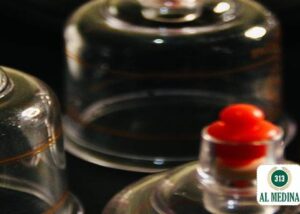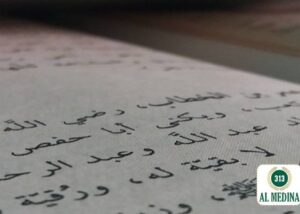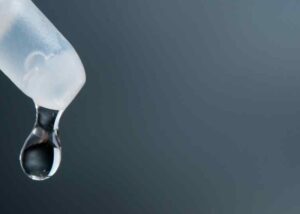Quran
Hadith
Islamic Text
No, a blood test does not break the fast?
عَنِ ابْنِ عَبَّاسٍ رَضِيَ اللَّهُ عَنْهُمَا: أَنَّ النَّبِيَّ صَلَّى اللهُ عَلَيْهِ وَسَلَّمَ احْتَجَمَ وَهُوَ مُحْرِمٌ، وَاحْتَجَمَ وَهُوَ صَائِمٌ
Ibn Abbas (May Allah Most High be pleased with them both) narrated that the Prophet ﷺ had cupping done upon him whilst he was in a state of Ihraam, and had cupping done upon him whilst fasting.’ (Sahih al-Bukhari, 1938).
Having a blood test does not break the fast. Firstly, because the general ruling is that eating, drinking and sexual activity nullify the fast. A blood test does not fall into any of these categories. Secondly, we have an explicit Hadith informing us that the Holy Prophet ﷺ had cupping done upon him whilst fasting. Therefore removing blood from the body does not nullify the fast. Some people misunderstand this Masalah due to a Hadith narration in Abi Dawood.
عَنْ ثَوْبَانَ، عَنِ النَّبِيِّ صَلَّى اللهُ عَلَيْهِ وَسَلَّمَ قَالَ: أَفْطَرَ الْحَاجِمُ وَالْمَحْجُومُ
(Sayidina) Thowbaan (May Allah Most High be pleased with him) narrated that the Prophet ﷺ said, ‘The person performing cupping and the person upon whom it is performed have both nullified their fasts.’ (Sunan Abi Dawood, 2367).
The Hadith in Abi Dawood must be understood in light of the narration in Bukhari. It is not permitted to base legal rulings upon some of the available narrations and ignore others. Rather it is obligatory to collect all relevant evidence before speaking about an issue. When the narrations are considered together, we see that they are reconciled by relating the Hadith in Abi Dawood to advice and guidance. Whilst the Hadith in Sahih al-Bukhari more directly relates to the legal ruling.
قلت أَرَأَيْت الصَّائِم يحتجم قَالَ نعم لَا يضرّهُ ذَلِك قلت أفتكره لَهُ أَن يحتجم قَالَ إِن خَافَ أَن يُضعفهُ فَأحب إِلَيّ أَن لَا يفعل قَالَ بلغنَا عَن رَسُول الله صلى الله عَلَيْهِ وَسلم أَنه نهى أَن يحتجم الصَّائِم ثمَّ أَنه رخص فِيهِ بعد ذَلِك وَاحْتَجَمَ وَهُوَ صَائِم محرم
I said, is it permitted for a fasting person to have Hijaamah (cupping) carried out upon him? He said, yes, it will not harm him (meaning the validity of his fast). I said to you believe it to be Makruh? He said if he fears that it will weaken him then I believe it is recommended for him not to do it. He continued, it has reached us that the Messenger of Allah ﷺ prohibited the fasting person from having cupping (Hijaamah) done. Thereafter, he ﷺ provided a dispensation and had cupping done upon himself whilst fasting. (Imam Muhmmad Shaybani narrating from Abu Hanifah, in Kitab al-Asl).
In the Nass above we see the ruling in the Hanafi Madhab. As mentioned above, the Hadith in Bukhari was considered to be referring to the legal ruling. Therefore, the Hanafi scholars said the fast is not nullified through Hijaamah (cupping). However, based on the Hadith in Abi Dawood, they said it is preferable not to have Hijaamah done if one fears it will weaken him. This ruling can be traced back to Sayidina Anas bin Malik (May Allah Most High be pleased with him).
سُئِلَ أَنَسُ بْنُ مَالِكٍ رَضِيَ اللَّهُ عَنْهُ: أَكُنْتُمْ تَكْرَهُونَ الحِجَامَةَ لِلصَّائِمِ؟ قَالَ: لاَ، إِلَّا مِنْ أَجْلِ الضَّعْفِ
(Sayidina) Anas bin Malik (May Allah Most High be pleased with him) was asked, did you used to dislike (Makruh) Hijaamah for a fasting person? He (May Allah Most High be pleased with him) said, ‘No, unless it would cause weakness.’ (Sahih al-Bukhari, 1940).
Since blood cupping does not nullify the fast, there is no reason to assume a blood test will break the fast. Rather a blood test is permitted for the fasting person. However, if one feels that the blood test will cause significant weakness then it is best avoided since that is Makruh. In such a case one should only go ahead with the test if it is a necessity.
And Allah Most High Knows Best.
-Answered by Shaykh Noorud-deen Rashid (12.04.2022)
See also:
Does eating or drinking forgetfully break your fast?
See also video:






